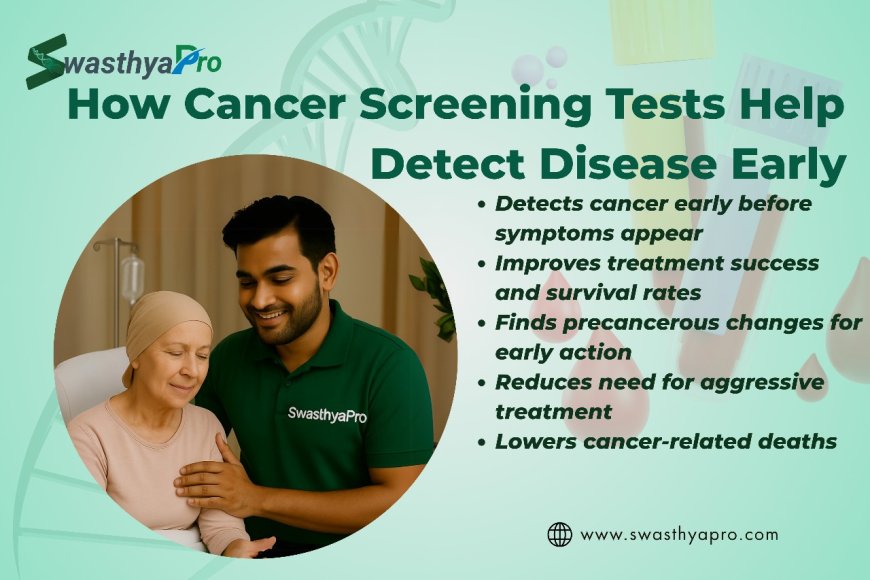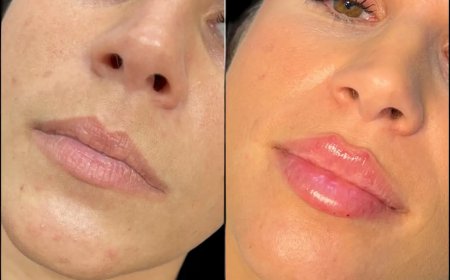How Often Should You Get a Cancer Screening Test? Age-Wise Breakdown

When it comes to staying ahead of serious illness, timing is everything. A cancer screening test isnt something you do once and forget its part of a long-term health plan. Knowing how often you should take each cancer screening test, based on your age and risk, can help catch disease early and save lives.
Below is a detailed age-wise breakdown of when and how frequently you should undergo various cancer screening tests, based on current medical guidelines.
Ages 2029: Laying the Foundation for Prevention
At this stage, cancer risk is low, but preventive habits begin here.
-
Cervical Cancer (Pap Smear):
Begin at age 21, every 3 years if results are normal.
HPV testing is usually not required in this age group unless abnormalities appear. -
Skin Cancer Screening:
Perform monthly self-exams, especially if you have many moles, light skin, or sun exposure.
Visit a dermatologist every 12 years if youre at higher risk. -
Testicular Exams (Men):
Not formal cancer screening tests, but monthly self-exams are encouraged to detect unusual lumps.
Ages 3039: Early Monitoring and Awareness
Your 30s are about staying proactive and consistent.
-
Cervical Cancer (Pap + HPV Test):
Every 5 years if both tests are done together and results are normal.
If only a Pap test is done, continue every 3 years. -
Breast Self-Exams (Women):
Begin monthly self-checks and clinical breast exams every 13 years.
Mammograms not usually required unless at high risk. -
Skin Cancer Screening:
Maintain yearly dermatologist checks if risk factors exist.
Ages 4049: The Critical Decade for Screening
This is when most cancer screening test schedules begin in earnest.
-
Breast Cancer (Mammogram):
Begin at age 40 every 12 years, depending on family history and risk. -
Colorectal Cancer:
Begin colonoscopy or stool-based test at age 45.
Colonoscopy every 10 years, or annual FIT tests if preferred. -
Prostate Cancer (PSA Test for Men):
Discuss screening at age 45 if at higher risk (African ancestry, family history).
Otherwise, screening may start at 50. -
Lung Cancer (Low-Dose CT):
If youre 50 or older and have a heavy smoking history, annual low-dose CT scans may be advised.
Ages 5064: Full Spectrum Cancer Screening
This is the age group where most major cancer screening tests become essential.
-
Colorectal Cancer:
Continue colonoscopy every 10 years, or stool tests annually or every 3 years (depending on the test type). -
Breast Cancer:
Mammograms every 12 years should continue. -
Cervical Cancer:
Continue Pap + HPV test every 5 years until age 65, unless advised otherwise. -
Prostate Cancer (PSA):
Begin routine PSA blood testing around age 50, earlier if at risk.
Frequency depends on initial PSA levels (every 12 years). -
Lung Cancer:
Continue annual low-dose CT scans if you meet the criteria (smoking history, age 5080). -
Skin and Oral Cancer:
Yearly visual exams by a doctor or dentist are encouraged.
Ages 65 and Above: Maintain or Adjust Based on Health
-
Breast Cancer:
Continue mammograms every 2 years, especially if life expectancy is 10+ years. -
Colorectal Cancer:
Continue screening until age 75. After that, base decisions on personal health and doctors advice. -
Cervical Cancer:
If youve had regular negative tests until age 65, you can stop screening.
Continue if youve had previous abnormalities or high risk. -
Prostate Cancer:
Continue PSA screening if you're in good health. Discontinue after age 7075 if risk is low. -
Lung Cancer:
Stop screening after age 80 or if youve quit smoking 15+ years ago and are low risk. -
Skin, Oral, and Other Cancers:
Annual visual exams remain important. Any new symptoms should prompt immediate testing.
Additional Considerations
-
Family History & Genetics:
If you have a family history of cancer, you may need earlier or more frequent cancer screening tests. -
Personal Medical History:
Survivors of cancer or chronic illness may follow adjusted screening plans. -
Lifestyle Choices:
Smoking, drinking, diet, obesity, and occupational hazards can raise your cancer risk and your need for timely cancer screening tests.
Final Thoughts
A cancer screening test is not one-size-fits-all. The right time and frequency depends on your age, risk factors, and doctors advice. But whats universal is the need to stay consistent.
? Mark screening dates on your calendar
? Talk openly with your physician
? Follow the age-appropriate plan
? Dont delay based on fear
Your body speaks. A cancer screening test listens before its too late.
Stay ahead. Stay alive. Get screened.



































